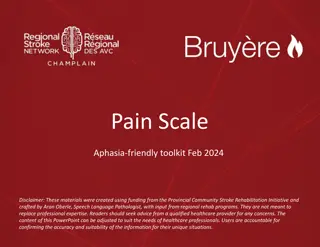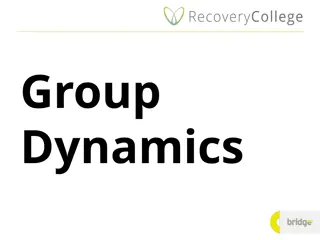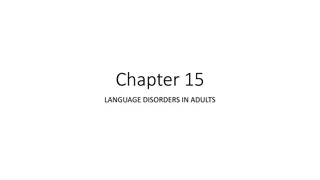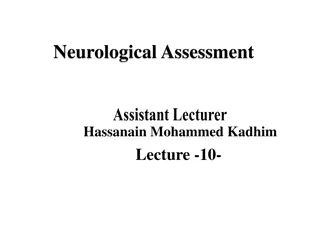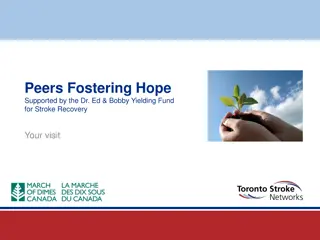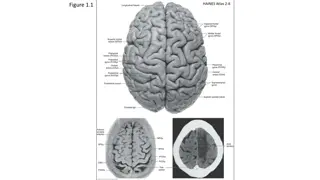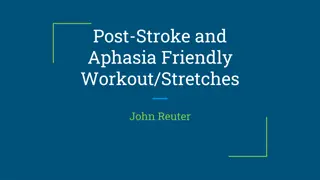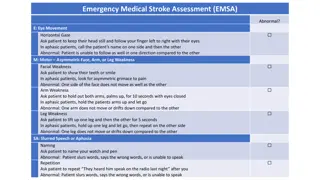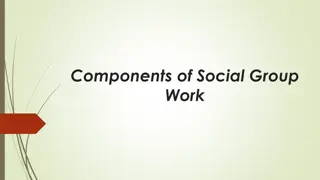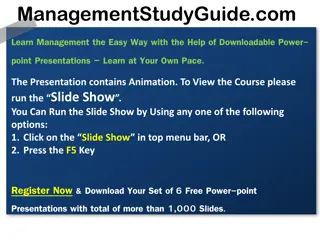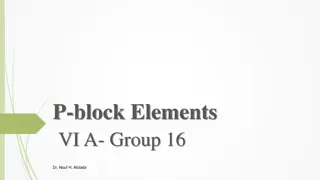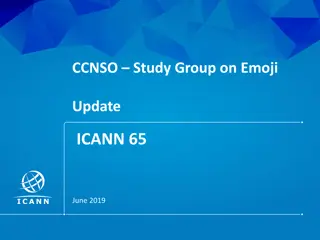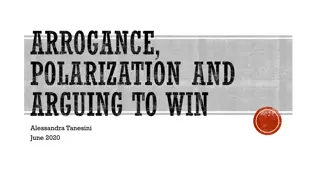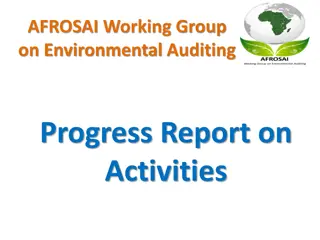Understanding Aphasia and Its Impact: Presentation to RVA Aphasia Group
Explore aphasia, a language disorder affecting communication, as discussed in a presentation to the Brain Injury Association of Virginia by the RVA Aphasia Group. Learn about its causes, symptoms, statistics, and the importance of early speech therapy evaluation. Participants include speech-language pathologists and survivors sharing insights and strategies for dealing with aphasia challenges within a supportive community setting.
Download Presentation

Please find below an Image/Link to download the presentation.
The content on the website is provided AS IS for your information and personal use only. It may not be sold, licensed, or shared on other websites without obtaining consent from the author. Download presentation by click this link. If you encounter any issues during the download, it is possible that the publisher has removed the file from their server.
E N D
Presentation Transcript
Presentation to the Brain Injury Association of Virginia Aphasia: What is it and How to Deal with the Challenges Presented by The RVA Aphasia Group January 11, 2023
Participants from RVA Aphasia Group Speech/Language Pathologists and a Survivor Susan B. Hapala, M.Ed., CCC-SLP Fern S. Cohen, M.Ed., CCC-SLP Risa F. Levine, M.S., CCC-SLP Deborah Seitz, TIA Survivor
Introduction Why are we here today? And, just what is the RVA Aphasia Group? We are here today to talk about what aphasia is, what causes aphasia, and common misconceptions about aphasia. We will also give you tips on how to communicate with a person who has aphasia. RVA Aphasia Group consists of SLPs and stroke or TIA survivors and their families. We strive to present a friendly and welcoming atmosphere where people with aphasia can relax and build relationships with their peers while practicing their speech.
Definition of Aphasia Aphasia is a language disorder that affects the ability to communicate Usually damage to a part of the left side of the brain causes aphasia Aphasia is most often caused by stroke People may have trouble with understanding what people say to them and difficulty with expressing their thoughts
Definition (continued) Word finding problems are characteristic of aphasia Some people with aphasia may not be aware of their communication deficits, especially if they are not understanding Signs and symptoms of speech may vary among individual people with aphasia Severity of symptoms may vary People with aphasia may also have difficulty with reading, writing and/or math
Statistics Approximately 2 million people are estimated to have aphasia in the United States (National Aphasia Association) Approximately 1/3 of strokes result in aphasia 80,000 new cases of aphasia each year in the U.S. (National Stroke Association) 15% of individuals under the age of 65 experience aphasia (ASHA) 43% of individuals 85 and over experience aphasia (ASHA)
Importance of Speech Therapy and Evaluation Importance of Speech Therapy and Evaluation Early evaluation and speech therapy treatment for aphasia by speech pathologists is recommended for all types of Aphasia.
Causes of Aphasia Stroke Traumatic Brain Injury (TBI), (for example, gunshot wounds, blast injuries, blows to the head) Brain Tumors Brain Surgery Brain Infections Other neurological diseases which are progressive in nature, (for example, Alzheimer's, Parkinson s, Primary Progressive Aphasia or combinations of multiple problems)
Causes (continued) Temporary causes of aphasia, for example Migraines Seizures TIAs (mini-strokes) Medications
Common Misconceptions about Aphasia People with aphasia are NOT: Under the influence of drugs or alcohol Subject to intellectual disability Psychologically ill Unwilling to try
Common Misconceptions (continued) People with aphasia are NOT: Demented Always elderly Always physically impaired Static in their ability to improve language function after 6 months of onset
Communicating with Persons who have Aphasia To Improve Person s Understanding of Speech: Get their attention before beginning Address them directly Address them in short sentences Repeat/rephrase when necessary Keep your voice level normal and emphasize key words Talk slowly Augment by using gestures and visual aids Turn off competing sounds
Communicating (continued) To Help the Person Get the Message Out: Ask one thing at a time; then wait for them to speak Avoid finishing their sentences-unless you have permission Make sure there is clear way to respond to yes/no questions, for example, thumbs up/down Ask fixed question (not open-ended questions) Ask person to give a clue by gesturing, pointing or drawing Be careful with numbers, days of week they often have trouble with them; also yes/no or left/right, so verify the information
Communications Toolkit Alphabet board Argumentative Devices Texting on a phone, iPad, or other electronic device Pencils and paper or magic slate for writing or drawing Simple picture chart Hand gestures Communication tips
Summation Aphasia-friendly communication can be summed up with this acrostic for the word aphasia: A: ask simple, direct questions P: provide multiple communication options H: help communicate if asked A: acknowledge frustration S: speak slowly and clearly I: if you don t understand, say so A: allow extra time
RVA Aphasia Group Resources Our video: Patience, Listening and Communicating with Aphasia Patients www.rva-aphasia.com Facebook Living with Aphasia Email info@rva-aphasia.com
The RVA Aphasia Group Thanks you for your time and your interest. We will now answer your questions. Speech/Language Pathologists Fern S. Cohen, M.Ed., CCC-SLP Susan B. Hapala, M.Ed., CCC-SLP Risa F. Levine, M.S., CCC-SLP Deborah Seitz, TIA Survivor



